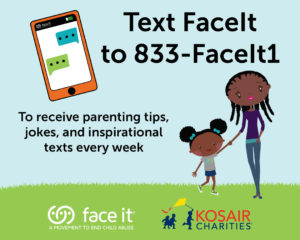
03 Feb How to Talk to Your Teen about Healthy Relationships
 February is Teen Dating Violence (TDV) Awareness Month. TDV affects millions of teens each year. According to the CDC, 1 in 11 female teens and 1 in 15 male teens reported experiencing physical dating violence in the last year. And we know that LGBTQ+ youth and racial/ethnic minorities are disproportionally impacted by all forms of violence. Youth who are victims of TDV are more likely to experience symptoms of anxiety and depression, exhibit antisocial behaviors, develop unhealthy coping behaviors, such as tobacco, drugs, or alcohol use, and even struggle with suicidal thoughts and ideations.
February is Teen Dating Violence (TDV) Awareness Month. TDV affects millions of teens each year. According to the CDC, 1 in 11 female teens and 1 in 15 male teens reported experiencing physical dating violence in the last year. And we know that LGBTQ+ youth and racial/ethnic minorities are disproportionally impacted by all forms of violence. Youth who are victims of TDV are more likely to experience symptoms of anxiety and depression, exhibit antisocial behaviors, develop unhealthy coping behaviors, such as tobacco, drugs, or alcohol use, and even struggle with suicidal thoughts and ideations.
Helping teens (and even pre-teens!) understand the importance of healthy relationships is vital in keeping our kids safe. When we have important conversations with our teens, they not only gain an understanding of what a healthy relationship looks like, but also begin to develop the skills needed to maintain those healthy relationships.
Talking to your teen about healthy relationships doesn’t have to be hard or uncomfortable:
- Define a healthy relationship.
Teach your teen that all relationships look different, but that there are some aspects of relationships that are non-negotiable, such as mutual respect, communication, trust, and support. Healthy relationships should also consist of healthy boundaries that allow for personal freedom. They should know that a healthy partner is someone that accepts them for who they are and won’t attempt to change them.
A great way to get this conversation going is to talk about their values and to share yours. Tell them what kinds of relationships you want for them and ask them what their ideal relationship looks like.
- Talk realistically about sex.
This can be an especially difficult conversation to have with your teen, but it’s one of the most important ones. Discussing the realities of sex with trusted adults can help teens understand the importance of making thoughtful sexual decisions.
The best way to discuss sex with your teen is to allow an open and honest conversation. A “presentation” to your teen may keep them from asking questions or coming to you with concerns. Instead, ask them to share their points of view and be willing to share yours.
- Set expectations and boundaries up front.
It is important to have intentional conversations with your teens before they even begin dating to discuss your expectations as a parent. Discuss with them your rules around dating, such as curfew, any restrictions on how they can date, and any other conditions you may have. Have an open dialogue on why you wish to set these boundaries and expectations. Being upfront with your teens now can prevent you from defining rules in the moment when confrontation is more likely to occur.
- Describe abuse and warning signs to be aware of.
Help your teen understand the different forms of abuse, such as physical, sexual, emotional, financial, as well as digital abuse and stalking. Be sure to define each and to inform them of the warning signs. Be sure they understand that everyone deserves to feel safe in their relationships and that they can reach out if they ever feel unsafe.
- Listen and offer support.
Above all, be available. They likely have many questions and many real concerns as they enter the dating world. Active listening can show your teen that they can come to you with their problems. Make sure they know that you can support them through the dating process, whether that means giving them a ride to and from a date or giving advice when they run into an issue. Knowing they have a solid support system can help them feel safe and confident as they begin to date.
Most importantly, if you are concerned about the safety of a family member or friend, encourage them to seek help. Face It partners from across the state are ready and willing to help individuals experiencing teen dating violence:
- The Center for Women and Families 24/7 Hotline: 1-844-237-2331
- The Nest Lexington: 1-859-259-1974
- GreenHouse17: 1-800-544-2022
- National Domestic Violence Hotline: 1-800-799-7233
Images courtesy of Pexels.com




